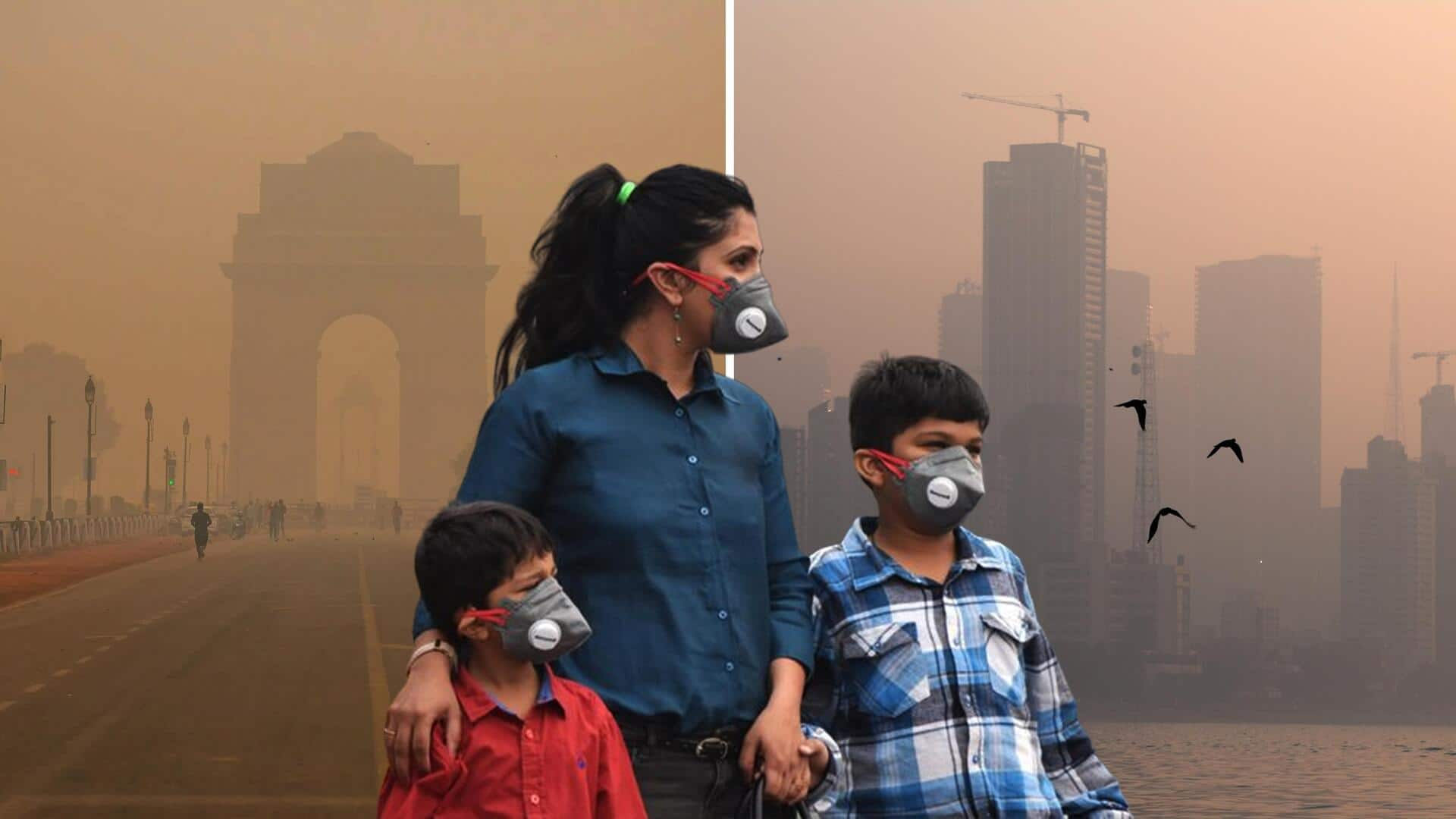
Delhi, Mumbai face worst pollution in years for October: Reports
What's the story
India's two major metro cities, Delhi and Mumbai, reportedly witnessed the "worst levels" of air pollution in years in the month of October. While the average air quality index (AQI) in Delhi was 302 (very poor), Mumbai recorded an AQI of 200 (poor) in some places on Sunday. Experts have listed several reasons for the significant drop in air quality.
Context
Why does this story matter?
The deteriorating air quality poses a serious health risk to the residents. In February, IQAir ranked Mumbai the second-most polluted city in the world in terms of the global AQI, according to The Indian Express. The data reportedly stated that Mumbai had the worst AQI in India, followed by Delhi and Kolkata. Delhi ranked fourth among the world's most polluted cities in 2022.
Mumbai
Mumbai saw particulate matter at 4-year high
Mumbai's air quality reportedly saw a significant drop last week, with the AQI reaching 170 on October 18, surpassing Delhi's AQI of 160 that day. Although Mumbai's air quality was at moderate levels reporting 132 AQI on Saturday, the city's several areas recorded poor air quality. The city also saw its particulate matter (PM) and temperature reach a four-year high for October.
Delhi
Delhi witnesses major drop in air quality
Meanwhile, Delhi's AQI was reported at 248 on Saturday, and it stood at 306 the next day. Experts attributed it to unfavorable weather conditions, Wion reported. Following this, the Commission for Air Quality Management (CAQM) invoked a ban on the use of coal and wood-fired stoves in the National Capital Region (NCR) and asked traffic police to ensure that there were no traffic jams.
Reasons
Reasons behind rising air pollution in both cities
The Delhi government said biomass burning remains a leading contributor to pollution in Delhi, according to India Today. On October 21, Delhi attributed 21.5% of pollution to biomass burning. On the other hand, the Maharashtra government reportedly claimed the probable reason for pollution in Mumbai was huge construction activities. Refineries, power plants, and chemical plants also contribute to the city's air pollution, it added.
Weather
Low temperature in Delhi also attributed to high pollution
Apart from the above causes, low temperatures have also been reportedly seen as one of the contributory factors. On October 17, Delhi recorded a high of 26.2 degrees Celsius, seven notches below normal and the lowest maximum temperature reported in October this year. Cold air, due to its higher density, tends to trap pollutants closer to the ground, resulting in poor air quality.